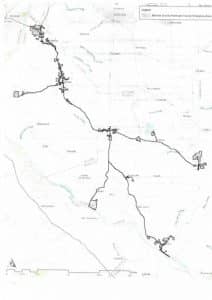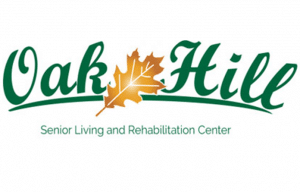Enterprise zone approved
The Illinois Department of Commerce & Economic Opportunity announced last Tuesday that it approved 14 new enterprise zones across the state, including one that spans Monroe and Randolph counties.
“I believe everyone involved in both counties is excited by the prospect of our region being more competitive in attracting and retaining businesses due to the incentives we will now have to offer,” said Edie Koch, Monroe County Economic Development Corporation executive director.
An enterprise zone is an economic program designed to stimulate economic growth and neighborhood revitalization in economically depressed areas through measures like tax incentives.
The zone will be active for 15 years, with an additional 10 years potentially added after a review in year 13.
Governments in both counties have been working on the zone since last January, with the MCEDC taking the lead with help from Edwardsville-based Moran Economic Development.
The MCEDC submitted an application that demonstrated how a Monroe-Randolph County enterprise zone would meet criteria like investment and job creation thresholds.
Each participating local government contributed $6,000 toward fees associated with that application.
“It has always been the public purpose of the two counties to promote the economic growth of its communities by encouraging public and private investment, promoting job creation and job retention and conserving the health, safety and welfare of the community,” Koch said. “It was determined collectively that the creation of an enterprise zone was necessary to better ensure that public purpose.
“It was great to see the partnership and cooperation between the two counties and their respective municipalities; that was the real key to making this all happen.”
The zone is in each of those communities and commercial and industrial corridors in between.
It must be a maximum of 15 square miles and contiguous, however, so those areas are connected by three-foot-wide strips along roadways.

Businesses in the zone can get four incentives.
Any business within the zone gets a .5 percent state investment tax credit for investing in qualifying property within the zone like machinery and buildings.
Any business that invests at least $10,000 can access a 6.25 percent sales tax exemption on building materials used in the zone.
For larger businesses, those that invest at least $5 million and create a minimum of 200 full-time equivalent jobs or invest $20 million and retain at least 1,000 full-time equivalent jobs can get a utility tax exemption on gas, electricity and the Illinois Commerce Commission’s administrative charge and telecommunication excise tax.
Finally, companies that invest at least $5 million and create at least 200 full-time equivalent jobs or invest at least $40 million and retain at least 90 percent of existing jobs can get a 6.25 percent state sale tax exemption on tangible personal property that will be used or consumed within the zone to manufacture or assemble other such property to be sold within the zone.
Koch predicted those incentives could help by creating and retaining jobs, alleviating any high unemployment rates within the zone’s labor market area, recruiting new development and investment, stimulating residential and commercial revitalization, creating a more favorable business climate and providing for orderly development within the zone.
Counties around the area have at least one enterprise zone, including St. Clair, Madison, Clinton and Washington. There are over 100 zones throughout Illinois.
According to the city of Effingham’s website, the enterprise zone in that county that existed from 1988-2017 “resulted in over 475 projects, $700 million in investment, 4,000 new jobs and 2,500 jobs retained.”
Effingham County has a population of 34,242 as of the 2010 census.
The enterprise zone will be managed by an organization comprised of elected officials or their representatives from each participating municipality.
The management organization will also appoint an enterprise zone administer to handle compliance and answer any questions. Any compensation for that position will be paid by the counties.
Koch said all the effort and money will be worthwhile.
“Businesses will be thrilled to be within the EZ Zone,” she said. “An important cornerstone of our successful application, were the 39 letters of support we received proposing $397 million of investment and 3,405 jobs created/retained over the next ten years, should the Monroe-Randolph County enterprise zone designation be approved. I think we all are definitely looking forward to working those projects.”






